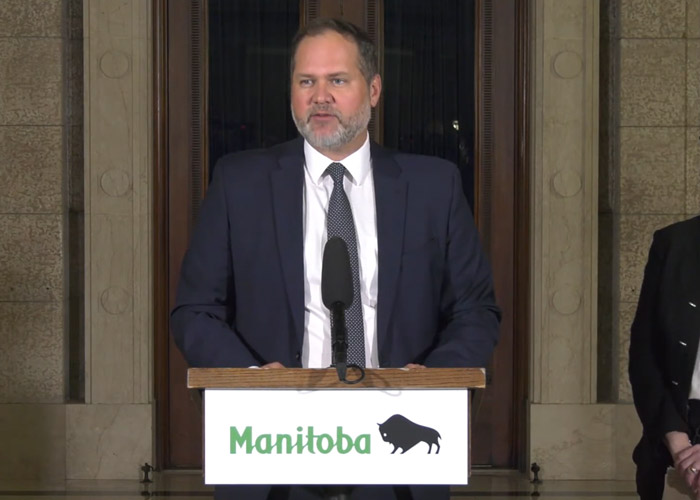The Manitoba government is providing more supports for Manitobans who are victims of crime through a 50 per cent increase in the funding directed to Manitoba Justice Victims Services from the Criminal Property Forfeiture Fund.
“We need to do everything we can to support Manitobans who are victims of crime,” said Justice Minister Matt Wiebe. “These resources will support programs running throughout the province and ensure that we can make compassionate, community-based care available to those who need it in the aftermath of a crime.”
The Criminal Property Forfeiture Fund uses the proceeds of the sale of seized criminal property to protect Manitoba families and enhance public safety. Grants from the fund are used for a variety of important initiatives, including building community, preventing crime, investing in youth and supporting victims of crime.
This year, the fund is providing a $750,000 to Manitoba Justice Victim Services, an increase from the usual $500,000, which will support a number of initiatives, including:
- Heartwood Healing Centre, which provides individual and group therapy to Manitobans 16 and over, who have experienced childhood sexual abuse.
- Survivor’s Hope Crisis Centre’s Sexual Assault Recovery and Healing (SARAH) Program which provides after-care and long-term counseling services, follow-up support and legal advocacy to victims of sexual violence and intimate partner violence.
- Nisichawayasihk Cree Nation Family and Community Wellness Centre, which provides a bereavement support group for families of homicide victims in Thompson and surrounding areas.
- Mount Carmel Clinic’s Sage House – Sisters Offering Support Program. Sage House is a drop-in centre and outreach program that provides essential resources and a safe space for women-identifying persons engaging in survival sex work.
- Ndinawemaaganag Endaawaad Inc.’s (Ndinawe) Child and Youth Care Certificate Program, a one-year program accredited by Red River College Polytechnic, which provides persons with past lived experiential lifestyles, the opportunity for accredited training in a community setting.
- Candace House, which provides wrap-around support in a comforting home-like day refuge for victims, survivors, and families who have lost a loved one to violent crime.
- MADD Canada, which provides essential education and awareness to communities across the country about the serious consequences of impaired driving.
“The financial support that Survivor’s Hope Crisis Centre receives from Manitoba Justice is fundamental to the care we provide to survivors of sexualized violence accessing our 24-7 SARAH crisis program at Interlake-Eastern area hospitals and RCMP detachments,” said Coral Kendel, executive director, Survivor’s Hope Crisis Centre. “Community-based programs like SARAH increase the options to justice available in rural Manitoba and empower survivors to heal in ways that make sense to them. We are encouraged to hear of the increase in funding provided to Manitoba Victims Services and look forward to our continued relationship together with the shared goal of supporting Manitobans impacted by violence.”
The minister noted the province provides over $20 million to agencies through the gender-based violence program focused on prevention and supporting survivors. This includes a $420,000 increase to shelters for women fleeing intimate partner violence in this year’s budget.





